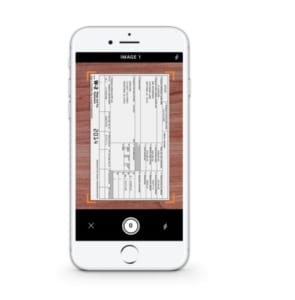Buying a Home with Zero Down
What is a “Zero-Down” Loan?
A zero-down home loan is a no-down-payment mortgage offered by the United States Department of Agriculture (USDA) for eligible rural and suburban home buyers.
You might be thinking, “but I don’t live in a rural area.” That’s OK. While the purpose of the USDA loan program is to boost home ownership in rural areas, the USDA’s definition of “rural” is wide ranging and includes many villages, small towns, suburbs and exurbs of major U.S. cities.
These loans are issued through the USDA Rural Development Guaranteed Housing Loan Program. USDA loans have been available since 2007. They are generally intended for low- or moderate-income borrowers.
 What Are the Benefits of a USDA Loan?
What Are the Benefits of a USDA Loan?
USDA loans offer many benefits over traditional mortgage loans.
- $0 down payment. This is the obvious benefit.
- Competitive interest rates. USDA loans typically offer some of the lowest interest rates on the market. Interest rates on USDA loans are determined by several contributing factors, however the primary factor is your credit profile, as is the case with all mortgage options. Those with higher credit scores often receive the most competitive rates, although borrowers with less than stellar credit may still qualify for a low rate due to the USDA guarantee.
- Low monthly mortgage insurance
- Lenient requirements. USDA loans are designed to provide homebuyers with lenient eligibility requirements that help low-to-moderate income purchasers obtain a home.
USDA Loan Eligibility
At a minimum, USDA loan program guidelines require:
- U.S. citizenship or permanent residency
- Ability to prove creditworthiness, typically with a credit score of at least 640
- Stable and dependable income
- A willingness to repay the mortgage, as indicated by at least 12 months of no late payments or collections
- Adjusted household income is equal to or less than 115% of the area median income. See here for income guidelines.
A credit score of 640 or above usually helps eligible borrowers secure the best rates for a guaranteed USDA loan with zero down payment. Such a score also rewards you with a streamlined or automated application process.
You can still qualify for a USDA loan if your credit score falls below the margin or if you have no credit history at all. However, the interest rates may not be as favorable. In addition, applicants with no traditional credit history may still qualify for these loans. However, you’ll need to show a reliable financial standing through evidence like timely utility or tuition payments.
How Do I Apply?
Applying for a USDA loan is pretty straightforward.
The first step is to choose a USDA lender, such as Michigan Mortgage. We specialize in USDA loans. Once you are working with us, we’ll find out what home you are interested in, where it’s located, your asset and debt situation, and how much you need to borrow. We will conduct a credit check to assess your credit score, just as we do with a traditional mortgage.
Once all that is done, we’ll ask you to provide documentation, including:
- Government-issued ID
- W-2 statements
- Recent pay stubs
- Bank statements
The application process is pretty easy, really. Our loan officers are skilled at making everything go smoothly and helping you navigate the process and get you in your home as soon as possible.
This blog post was written by experts at Mortgage 1 and originally appeared on www.mortgageone.com. Michigan Mortgage is a DBA of Mortgage 1.



 Conventional Loan
Conventional Loan
 Once the crisis passes, there will be even more buyers and sellers. Some mortgage forecasters are predicting a pent-up demand of buyers flooding the market.
Once the crisis passes, there will be even more buyers and sellers. Some mortgage forecasters are predicting a pent-up demand of buyers flooding the market.
 It is important for you to analyze your spending habits. If you do not have a budget, you should start one now. This will help you understand you spending habits so that the lifestyle that is important to you will be maintainable as a homeowner.
It is important for you to analyze your spending habits. If you do not have a budget, you should start one now. This will help you understand you spending habits so that the lifestyle that is important to you will be maintainable as a homeowner.
 Not having your financing in order when you are ready to make an offer. It is critical to have a pre-approval from a trusted lender. Especially in a low inventory, competitive market, the buyer who has financing in place is ready to write the offer and “win” the home. So, don’t put yourself in the position of falling in love with a home that you aren’t able to bid on quickly!
Not having your financing in order when you are ready to make an offer. It is critical to have a pre-approval from a trusted lender. Especially in a low inventory, competitive market, the buyer who has financing in place is ready to write the offer and “win” the home. So, don’t put yourself in the position of falling in love with a home that you aren’t able to bid on quickly!
 FHA has a no credit loan when a borrower has no credit score but can prove a 12-month pay history on three lines of non-traditional credit.
FHA has a no credit loan when a borrower has no credit score but can prove a 12-month pay history on three lines of non-traditional credit.
 It all started many, many years ago. In third grade, in fact. Long before Rob Garrison was a licensed Loan Officer, he spent his days on the playground with Brian Fredricks. A friendship was born and it has lasted for nearly half a century.
It all started many, many years ago. In third grade, in fact. Long before Rob Garrison was a licensed Loan Officer, he spent his days on the playground with Brian Fredricks. A friendship was born and it has lasted for nearly half a century.
 “Buying a home is a serious investment,” said Loan Officer Rob Garrison. “Before you start shopping home listings, it is important to sit back, do your homework and analyze your personal and financial goals as well as your lifestyle before you take the plunge.”
“Buying a home is a serious investment,” said Loan Officer Rob Garrison. “Before you start shopping home listings, it is important to sit back, do your homework and analyze your personal and financial goals as well as your lifestyle before you take the plunge.”
 Tip #3:
Tip #3: 
 1. Plan ahead. Before you begin saving for a down payment for a home, you first need to know approximately how much you will have to save. Plan to sit down with a mortgage lender who will let you know what you qualify for.
1. Plan ahead. Before you begin saving for a down payment for a home, you first need to know approximately how much you will have to save. Plan to sit down with a mortgage lender who will let you know what you qualify for.